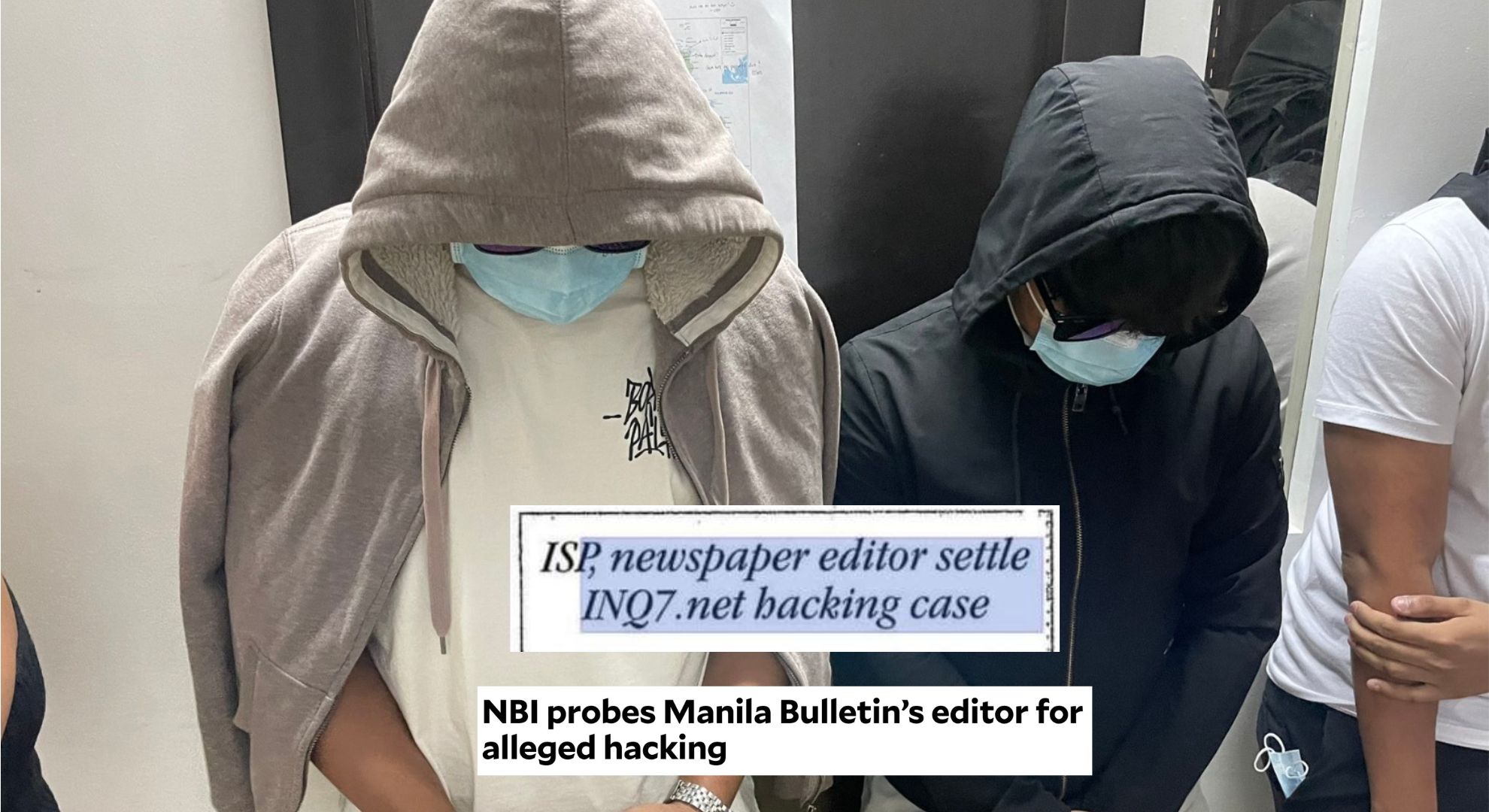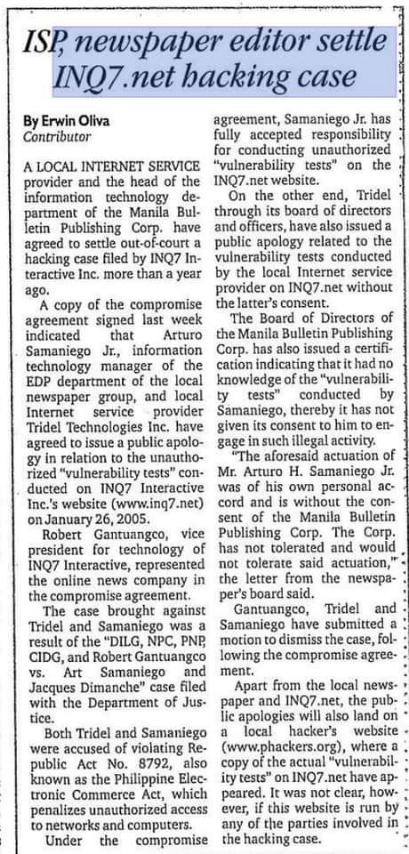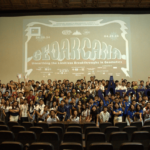The National Bureau of Investigation (NBI) has arrested a ‘data officer’ from the Manila Bulletin (MB), along with two accomplices, for allegedly hacking into banks and government websites. This arrest highlights a pattern of unauthorized access and hacking activities linked to individuals within the organization.
During a press conference, the MB employee alleged that he had been instructed by the newspaper’s IT editor, to hack various systems from 2018 or 2019. The suspect, whose identity was concealed, claimed he was recruited by the said editor during his time with the hacking group Pinoy Lulzsec. He further alleged that the hacks were then used as material for the editor’s column.
This recent scandal has brought renewed attention to the IT Editor’s controversial past. In 2005, he was involved in a significant hacking case brought by INQ7 Interactive Inc. At the time, he was the head of the information technology department at Manila Bulletin. He, along with Tridel Technologies Inc., conducted unauthorized “vulnerability tests” on INQ7’s website, which resulted in a lawsuit.
The 2005 case, filed by INQ7 Interactive Inc. with the Department of Justice, accused him and Tridel of violating the Philippine Electronic Commerce Act, which penalizes unauthorized access to networks and computers. He and Tridel conducted the tests without INQ7’s consent, leading to significant security concerns.
The case was eventually settled through a compromise agreement. He and Tridel issued public apologies and accepted full responsibility for their actions. The Manila Bulletin Board of Directors distanced the organization from his activities, emphasizing that the tests were conducted without their knowledge or consent. The settlement included public apologies from both him and Tridel, which were published in various outlets, including a local hacker’s website.
The recent arrest involved the discovery of scripts, databases from various government websites, and Facebook users’ credentials on the suspects’ devices. Data related to hacked banks, including the Philippine National Bank, Security Bank, Banco de Oro, and Union Bank, were also found. The NBI stated that the suspects are part of the hacking groups “LulzSec” and “Globalsec” and announced that they would be charged under the Cybercrime Prevention Act of 2012 and the Data Privacy Act of 2012.
In response to the current allegations, Manila Bulletin issued a statement reaffirming its adherence to the law and the rights of its employees.The IT Editor, in an interview with DZRH, denied the recent allegations, claiming innocence.
The ongoing investigation continues to disclose the extent of the person in question’s involvement in these hacking activities, casting a shadow over his professional credibility given his previous entanglement in similar illegal activities. The 2005 hacking case serves as a reminder of his controversial history and also raises serious questions about the ethical standards within the organization.
Other POP! stories that you might like:
Student TikToker criticized for ‘disturbing’ classes for online content
Actress Shay Mitchell seemingly denies Filipino roots by claiming she’s ‘half Spanish,’ gets blasted




